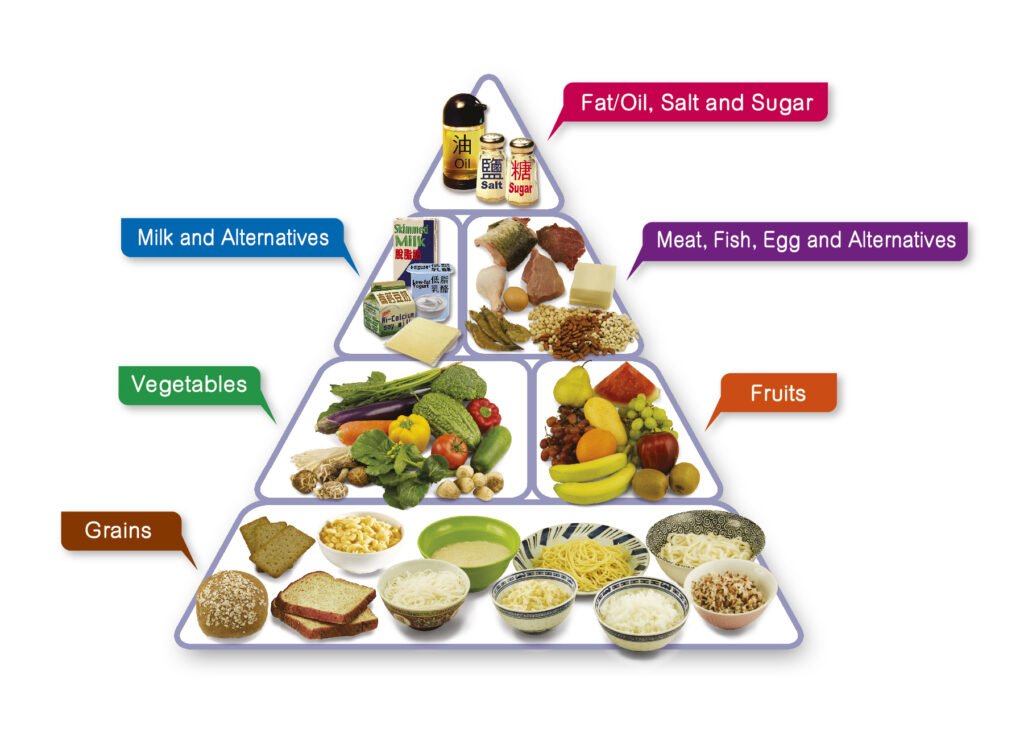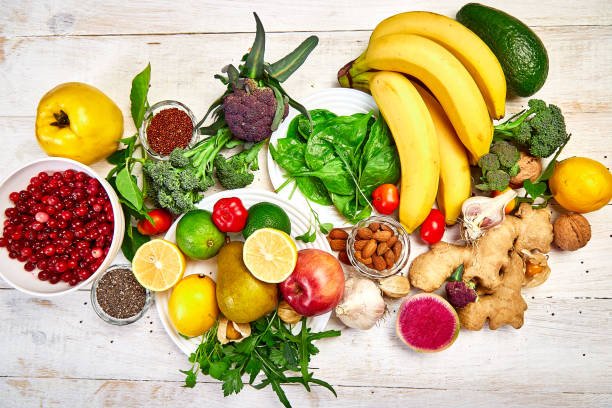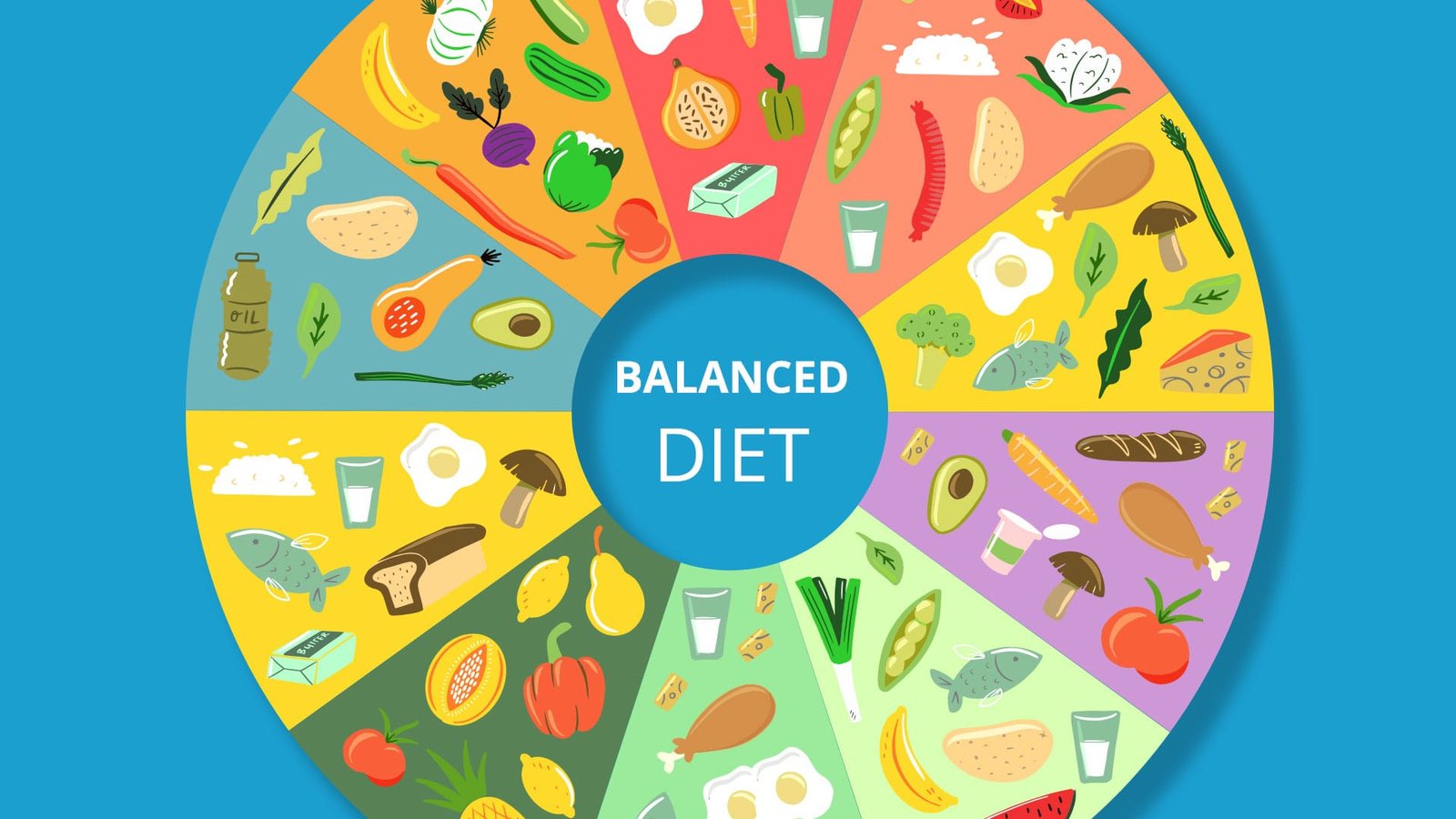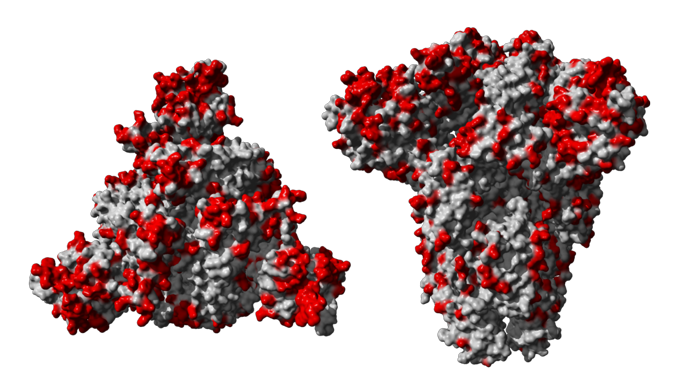

In a world driven by busy schedules and convenience, maintaining a balanced diet often takes a backseat. However, the significance of consuming a balanced diet cannot be overstated. A balanced diet plays a pivotal role in maintaining good health, providing the body with essential nutrients, energy, and supporting overall well-being. In this article, we’ll delve into the importance of a balanced diet and explore practical ways to incorporate one into your daily routine.
1. Balanced Diet for Health ( Introduction )
In a world where unhealthy food options are abundant, understanding the significance of a balanced diet is crucial for our well-being. A balanced diet encompasses a variety of nutrients that provide the body with the right fuel to function optimally.
2. What is a Balanced Diet?
A balanced diet is one that contains a mix of essential nutrients in the right proportions. It involves consuming a diverse range of foods that collectively fulfill the body’s nutritional requirements. A balanced diet isn’t about depriving yourself; it’s about making informed choices that contribute to your overall health.
3. The Importance of a Balanced Diet
Maintaining a balanced diet is a cornerstone of good health. It ensures that your body receives the nutrients it needs for growth, repair, and daily activities. A balanced diet helps boost immunity, supports healthy organ function, and reduces the risk of chronic diseases.
also read aboutHow to Get naturally smoother hair

4. Key Components of a Balanced Diet
4.1 Protein
Protein is essential for building and repairing tissues, producing enzymes and hormones, and maintaining muscle mass. Sources of protein include lean meats, poultry, fish, beans, and dairy products.
4.2 Carbohydrates
Carbohydrates provide the body with its primary source of energy. opt for complex carbohydrates like whole grains, fruits, and vegetables, which release energy gradually.
4.3 Fats
Dietary fats are vital for cell growth and protecting organs. Focus on healthy fats found in avocados, nuts, seeds, and olive oil, while limiting saturated and trans fats.
4.4 Vitamins and Minerals

Vitamins and minerals play a crucial role in various bodily functions. Consume a colorful array of fruits and vegetables to ensure you get a spectrum of these essential nutrients.
4.5 Fiber
Fiber aids digestion, promotes a feeling of fullness, and supports a healthy gut. Whole grains, legumes, fruits, and vegetables are excellent sources of dietary fiber.
5. Portion Control
While consuming nutritious foods is important, portion control is equally vital. Overeating, even healthy foods, can lead to weight gain. Be mindful of portion sizes to avoid excess calorie intake.
6. Tips for Maintaining a Balanced Diet
6.1 Incorporate Variety
Include a variety of foods in your diet to ensure you’re getting a wide range of nutrients.
6.2 Choose Whole Foods
Opt for whole, unprocessed foods over highly refined options. These foods retain more nutrients and are less likely to contain added sugars and unhealthy fats.
6.3 Stay Hydrated
Drink plenty of water throughout the day. Hydration is essential for various bodily functions and can also help control overeating.
also read about Healthy Skin Care Tips: Achieving Radiant Skin Naturally
6.4 Mindful Eating
Pay attention to what you’re eating. Eating mindfully can prevent overeating and help you enjoy your food more fully.
6.5 Plan Your Meals
Planning your meals ahead of time can prevent impulsive, unhealthy food choices. It also helps you ensure a balanced intake of nutrients.
7. The Role of a Balanced Diet in Weight Management
A balanced diet contributes significantly to weight management. By consuming the right foods in appropriate portions, you can achieve and maintain a healthy weight.
8. The Impact of a Balanced Diet on Overall Health
8.1 Heart Health
A balanced diet rich in fruits, vegetables, whole grains, and healthy fats supports heart health by reducing the risk of cardiovascular diseases.
8.2 Digestive Health
Dietary fiber from plant-based foods aids digestion and prevents constipation. It also supports the growth of beneficial gut bacteria.
8.3 Energy Levels
Balanced meals provide a sustained release of energy throughout the day, preventing energy crashes.
8.4 Mental Well-being
Nutrient deficiencies can impact mental health. A balanced diet ensures the brain receives the nutrients it needs for optimal function.
9. Common Misconceptions About Dieting
Dispelling misconceptions about dieting is crucial. Crash diets and extreme restrictions are often ineffective and can lead to health problems.
10. Conclusion
Incorporating a balanced diet into your lifestyle is a powerful investment in your health. By consuming a variety of nutrient-rich foods in appropriate portions, you can enjoy enhanced well-being, improved energy levels, and a reduced risk of chronic diseases.
Frequently Asked Questions ( FAQs )
- Q: What exactly is a balanced diet?
A: A balanced diet comprises a mix of nutrients in proper proportions, promoting overall health. - Q: Can I still enjoy my favorite treats on a balanced diet?
A: Yes, moderation is key. You can indulge occasionally while prioritizing nutrient-rich foods. - Q: How can a balanced diet impact my energy levels?
A: Balanced meals provide a steady supply of energy, preventing energy spikes and crashes. - Q: Is a balanced diet suitable for weight loss?
A: Yes, a balanced diet supports sustainable weight loss by promoting healthy eating habits. - Q: What are some easy ways to start transitioning to a balanced diet?
- A: Begin by adding more fruits, vegetables, and whole grains to your meals while reducing processed foods.
https://www.nutrition.gov/topics/basic-nutrition/healthy-eating
also readHow to stop alcohol addiction at home 15 Tips






